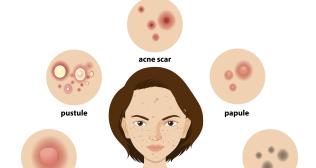
What are Common Winter Skin Care Issues and Their Prevention?
One of the most prevalent problems during winter is dry skin. You'll notice dryness on your hands, legs, and even across your body and face. Chapped lips and dry hair are also common, along with brittle knees. Beyond simple dryness, existing skin conditions like acne or psoriasis may worsen during this season. Even conditions like dry eczema can become more severe, leading to excessive itching and potentially mild infections.
What are the causes and risk factors behind these issues?
The primary culprit for skin dryness is dehydration. When your skin lacks moisture, it becomes dry and prone to chapping. If you're spending time outdoors, remember to apply sunscreen, even in winter, to protect your skin.
After bathing, apply moisturizer immediately, and opt for layered clothing with cotton as the innermost layer, especially if you plan to wear wool in colder climates. Avoid materials that can irritate the skin directly.
Before bathing, consider applying coconut oil and use a gentle cleanser. Keep your baths short, about 3 to 6 minutes, and moisturize promptly afterward.
Staying hydrated by drinking plenty of water, consuming fresh fruits and vegetables, and maintaining proper nail and hair care routines can also help combat dryness.
Reducing stress and ensuring adequate sleep can keep your skin soft and supple. If you have any pre-existing skin conditions, continue following your doctor's prescribed regimen, supplementing with moisturizer as needed.
While dryness and itching are common in winter across age groups, prolonged or severe itching may warrant a visit to the dermatologist. Itching that persists for more than a week, especially in certain age groups, could signal underlying issues.
For children, it might be a contagious condition like scabies, while in middle-aged individuals, it could still be scabies or even a symptom of internal malignancy. Seniors experiencing persistent, unbearable itching should seek medical attention, as it could indicate internal health issues such as liver dysfunction or thyroid abnormalities.
In summary, don't dismiss generalized itching during winter. Consult a dermatologist for proper evaluation and guidance to address any underlying concerns.
Categories
Clear allMeet the doctor

- Dermatology | Dermatology
-
14 Years
-
1050


















